Elizabeth Kubler Ross, author of “On Death and Dying” was an instrumental figure in the understanding of the human experience of grief and loss. While her book focused on the grieving process in relation to mortality, the principles she outlined have since been applied to a wide-range of loss experiences.

Elizabeth Kubler-Ross
These may include the loss of health, the loss of opportunity, the loss of a job, the loss of a role or responsibility, the loss of identity, and a host of others. The grief and loss that I will be focusing on in this post and the next is the loss of fidelity. In other words, I am referring to the typical and predictable response to infidelity in a relationship. In this first post, I will outline the stages of grief of the Kubler-Ross Model and in the second post, I will apply these principles to the issue of infidelity specifically. By understanding the stages, or forms of grief outlined by Kubler-Ross, individuals may be able to recognize where their experiences be found along the continuum of typical responses to this form of tragedy.
The Five Stages of Grief
1. Denial
This is a state of emotional shock, wherein the individual cannot (often confused with ‘will not’) see things as they actually are. They may not be able to deny the occurrence of the loss but they deny its impact, minimizing the wave of repercussions in their own mind. This may appear to be willful and I suppose that sometimes there is an element of conscious choice but for the most part, denial is a biological process, initially adaptive in that it allows us to deal with the immediate consequences of the loss without getting bogged down in the weightier implications. However, becoming stuck here only perpetuates the loss and prevents true healing from taking place.
2. Bargaining
Initially understood as a pre-death experience, bargaining also takes place following a loss, usually in the form of regret. Bargaining is indicated by sentiments that begin with some variation of, “If only…”. This way of thinking may seek to blame others for the loss or to blame oneself. The bargaining stage is really about an attempt to feel as if we have some control over these situations. Even if the loss has already occurred, there is some existential comfort in the notion that we have some influence in the outcome of loss situations, as it holds the promise that if we do things differently, then such outcomes can be avoided in the future. While this is definitely true in some cases, it is patently false in others. Bargaining is a very unconscious reflexive response to loss as it keeps the actual pain at arm’s length. Even the pain of regret or blame pales in comparison to the actual pain of loss.
3. Anger
Anger is very typical, although the target of the anger is highly variable. As stated above, blame is often tossed around, landing on either the self, other people, God, the universe, fate, or any of a host of entities seen to be involved in the experience. What is the function of anger in grieving? It is the same as with both of the previous stages, to keep the pain at arm’s length. Anger carries with it feelings of power and control, even if those feelings are just an illusion. When you look out your window and scream “I’m mad as hell I’m not going to take it anymore”, you feel strong. You feel like there is something you can do to control your own destiny and to some degree you are correct. However, you are not correct to the degree that you think you are. One of the elements that makes the anger stage so complicated is when the anger is directed towards the object of loss. To be angry at a loved one for dying of a terminal illness is not particularly socially acceptable but those feelings of abandonment are not exactly voluntary either. This leaves the grieving individual stuck with angry feelings but without the ability to express them without repercussions. This leads to internalizing the feelings and coupling them with shame for feeling that way at all.
4. Mourning
When denial, bargaining, and anger have run their course and the brain is fatigued beyond further effort, the (first) wave of mourning will ensue. It will carry with it not just a sadness but a realization of hopelessness to change the past, of the finality of the loss. It can be debilitating and this is one of the reasons that the new Diagnostic and Statistical Manual of the American Psychiatric Association has removed bereavement as an exclusionary criterion for the diagnosis of major depressive episodes. Previously, it was argued that grieving is a normal part of human existence and therefore should not be pathologized and “diagnosed”. However, despite its normality, it is undeniable that someone weighed down in the depths of mourning is not functioning at their best, even if they are functioning at their expected best, given the circumstances.
5. Acceptance
Depending on the type of social support that individuals receive through the first four stages, they may ultimately arrive at a place of acceptance of the loss. This is not to be confused with the idea that they are happy about the loss or even that they no longer resent the loss. It simply means that they are completely aware of the loss, that there is no more denial, no more blame, no more “what if…” and no more hopelessness. It is a realization that what has happened actually happened, that its occurrence will be a part of the fabric of the individual’s existence hereafter. It doesn’t need to define one’s existence (and indeed if it does, I would argue that that individual has not truly reached acceptance at all) but it will nevertheless be a part of that existence. It will be a part of their story forever after. The role it plays in that story, however, is up to them and no one else.
It is important to note that Kubler-Ross repeatedly clarified that these stages are not necessarily a progressive concept. This means that individuals don’t necessarily start at stage 1 and proceed in order until they come to stage 5. In fact this may only occur in the minority of cases. Individuals may follow very unpredictable patterns of response in terms of the order of the stages but the stages themselves are almost universal. Different types of social and emotional support, prior-loss history, emotion regulation ability, and existential spiritual beliefs may all function as mediators in the impact of loss.
In Part 2, I will discuss how these stages may show up following the loss of fidelity in a relationship.














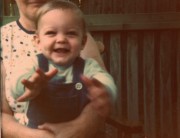
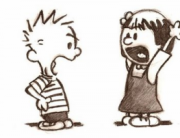













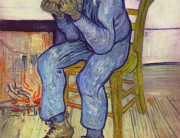

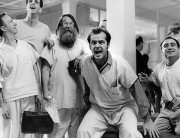




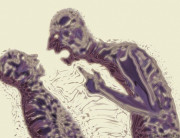



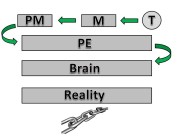





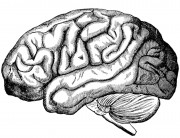



[…] Previous […]